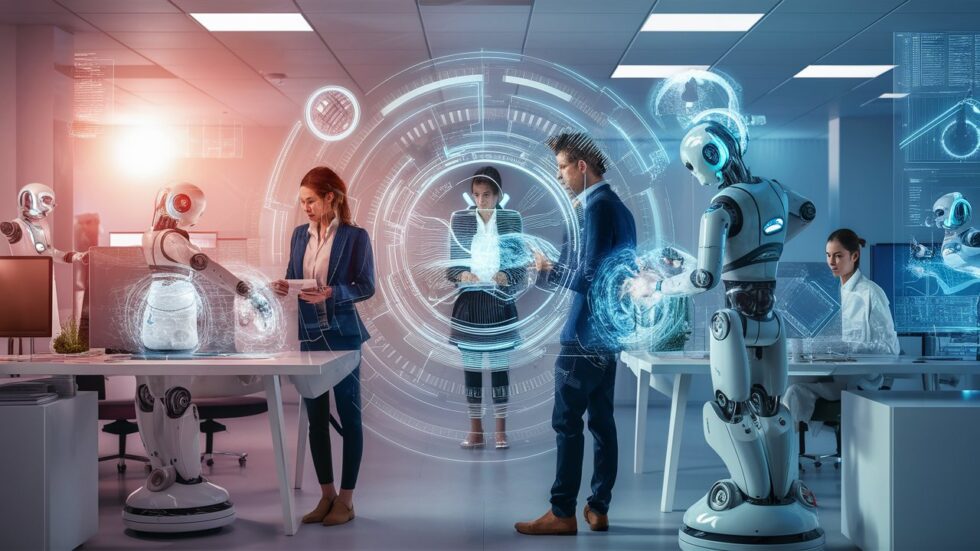
Artificial Intelligence (AI) is no longer a futuristic buzzword reserved for sci-fi enthusiasts—it has become an integral part of the scientific process itself. From decoding the mysteries of the universe to accelerating drug discovery, AI is quietly reshaping how science operates. Think of it as a new kind of research assistant: tireless, lightning-fast, and capable of analyzing patterns that would take humans decades to uncover. The result? A new era where the boundaries of discovery are expanding at an unprecedented pace.
A Catalyst for Scientific Breakthroughs
Traditionally, science has been about observation, experimentation, and hypothesis testing. While this method remains at the core of discovery, the sheer scale of modern data has transformed the playing field. Astronomers map galaxies with telescopes that capture terabytes of data daily. Biologists sequence entire genomes that contain billions of data points. Climate scientists analyze centuries of weather patterns alongside real-time sensor information.
This is where AI becomes indispensable. Machine learning algorithms can sift through enormous datasets, spot patterns invisible to the human eye, and even generate predictions. For instance, rather than spending years mapping a protein structure, researchers can now use AI models like AlphaFold to predict how proteins fold in a matter of hours. Such acceleration doesn’t just save time—it opens doors to treatments for diseases once thought incurable.
Medicine: A Revolution in Speed and Precision
Nowhere is the influence of AI more visible than in medical research. The race to develop vaccines during the COVID-19 pandemic illustrated AI’s potential. Instead of laborious trial-and-error experiments, AI algorithms rapidly analyzed viral structures, modeled potential drug interactions, and suggested viable vaccine designs.
Beyond pandemics, AI is redefining how we approach health more broadly. Consider oncology, where AI models can scan thousands of medical images and detect early signs of cancer with an accuracy rate that rivals, and sometimes surpasses, human doctors. Genomics, too, has benefited: AI helps uncover genetic mutations linked to specific diseases, laying the foundation for personalized medicine. In other words, the medicine of tomorrow may no longer be “one-size-fits-all” but tailored to each individual’s unique biological blueprint.
Climate Science: Predicting the Unpredictable
The climate crisis demands urgent answers, and AI is becoming a critical ally in this global effort. Climate systems are notoriously complex, influenced by countless interdependent variables. Traditional models often struggle to capture the chaos of nature. AI, however, thrives in complexity.
From predicting extreme weather events to modeling rising sea levels, AI helps scientists process vast amounts of environmental data and generate more accurate forecasts. For example, AI-enhanced simulations can predict hurricanes days in advance with greater precision, giving communities more time to prepare and potentially saving lives. On a global scale, AI is used to design renewable energy systems, optimize energy grids, and even monitor deforestation through satellite imagery.
In short, AI doesn’t just help us understand the planet—it helps us protect it.
Space Exploration: Charting the Unknown
The night sky has always fascinated humanity, but with AI, our reach into the cosmos has grown stronger than ever. Space missions now rely on AI to process astronomical data, navigate autonomous rovers, and even identify exoplanets. NASA’s Kepler mission, for example, produced mountains of data about distant stars and planets. Instead of manually sifting through it, researchers turned to AI algorithms, which discovered thousands of new exoplanets, including some in the so-called “Goldilocks zone”—the sweet spot where conditions might support life.
AI also powers autonomous spacecraft, capable of making split-second decisions millions of miles from Earth. Imagine a Mars rover using AI to detect unusual rock formations or to decide its safest path across rugged terrain. In such scenarios, AI acts as both scientist and explorer, extending human curiosity into realms we cannot yet physically reach.
Challenges and Ethical Considerations
Yet, as with all powerful tools, AI in scientific research raises important questions. Who controls the algorithms? How do we ensure that AI-generated findings are accurate and unbiased? After all, AI is only as reliable as the data it is trained on. If that data is flawed or incomplete, the conclusions could be misleading.
Another concern lies in transparency. Scientific progress relies on reproducibility—other researchers must be able to validate results. But many AI systems operate as “black boxes,” making decisions in ways even their creators struggle to fully explain. Ensuring that AI remains a transparent, trustworthy partner in science will be one of the greatest challenges of the coming decade.
There are also ethical concerns, particularly in medical research. AI might be able to predict disease risks, but how should that information be used? Should insurance companies have access to such predictions? Should governments? These questions highlight the need for clear policies and global cooperation in managing AI’s role in research.
The Human-AI Partnership
Despite these challenges, one thing remains clear: AI is not here to replace scientists—it is here to amplify them. Human curiosity, creativity, and intuition are irreplaceable elements of the scientific process. AI provides the tools, but it is still up to researchers to ask the right questions, interpret results, and make sense of discoveries in the broader human context.
Think of AI as a telescope for the mind. Just as Galileo’s telescope revealed worlds we could not see with the naked eye, AI opens intellectual frontiers we could not reach through traditional methods alone. The scientist of the future will not just use pipettes and microscopes but will also collaborate with algorithms that accelerate the journey from hypothesis to discovery.
Conclusion: Science at the Speed of Thought
Artificial Intelligence is not just changing the pace of science—it is redefining the very nature of discovery. From decoding DNA to mapping the stars, AI has become the backbone of modern research, enabling us to ask bigger questions and find answers faster than ever before.
We stand on the brink of a new era where discovery happens at the speed of thought, powered by algorithms but guided by human imagination. The fusion of AI and science is not about man versus machine—it is about man with machine, working together to unlock the mysteries of our world and beyond.
In the end, AI may not replace the scientist—but it just might make science limitless.






